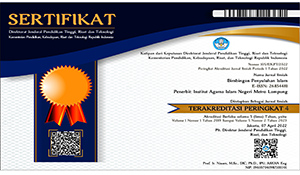FILOSOFIS KEBENARAN FIKSI SEBAGAI PENGEMBANGAN INTELEGENSI BAGI KEHIDUPAN INDIVIDU MANUSIA
DOI:
https://doi.org/10.32332/jbpi.v1i2.1723Keywords:
Intelligence, Philosophy, Fiction and Individual DevelopmentAbstract
The study of intelligence development, as a form of analyzing the intelligence of creativity in revealing objects and trying to find specific, unique things contained in fiction. Changes in the way of thinking intelligence in a fictional truth is a discourse to express a pattern and story line with an understanding. Understanding of intelligence by distinguishing, guessing, then explaining, which is in fiction. The problem of literary works called fiction is a work that tells something that did not really happen. There is a difference of opinion in a work of fiction because it is not in accordance with his views but, intellectually and academically, the truth is less acceptable. The theory used to uncover the phenomenon is based on theory, Utami Munandar that, by way of divergent thinking. Methodology by using critical analysis in an effort to unravel, philosophically discourse of the truth of fiction by using intelligence as a logical reasoning power to find out the harmony in fiction. The results of the study found that, philosophical truth fiction can change individuals able to imagine, understand the situation, experience, and understanding. The ability of individual intelligence will increase after reading fiction based on the ability of intellectual imagination possessed. The conception is based on the development of intelligent divergent ways of thinking that is spread which is also called creative imaginative thinking an ability to provide various answers based on the information provided, with an emphasis on diversity, number and suitability.







